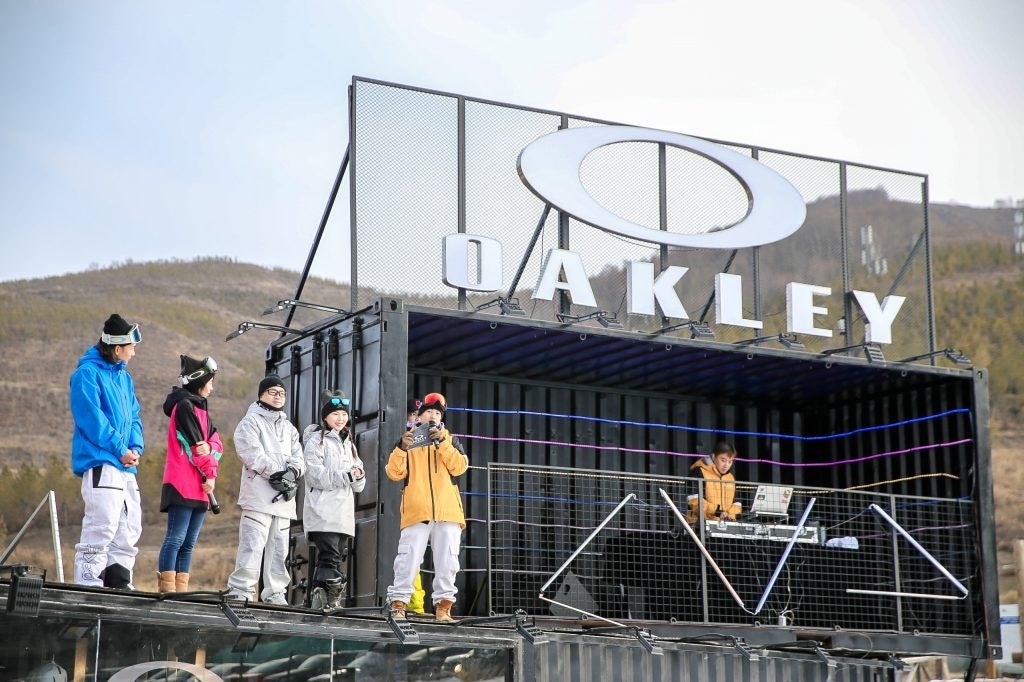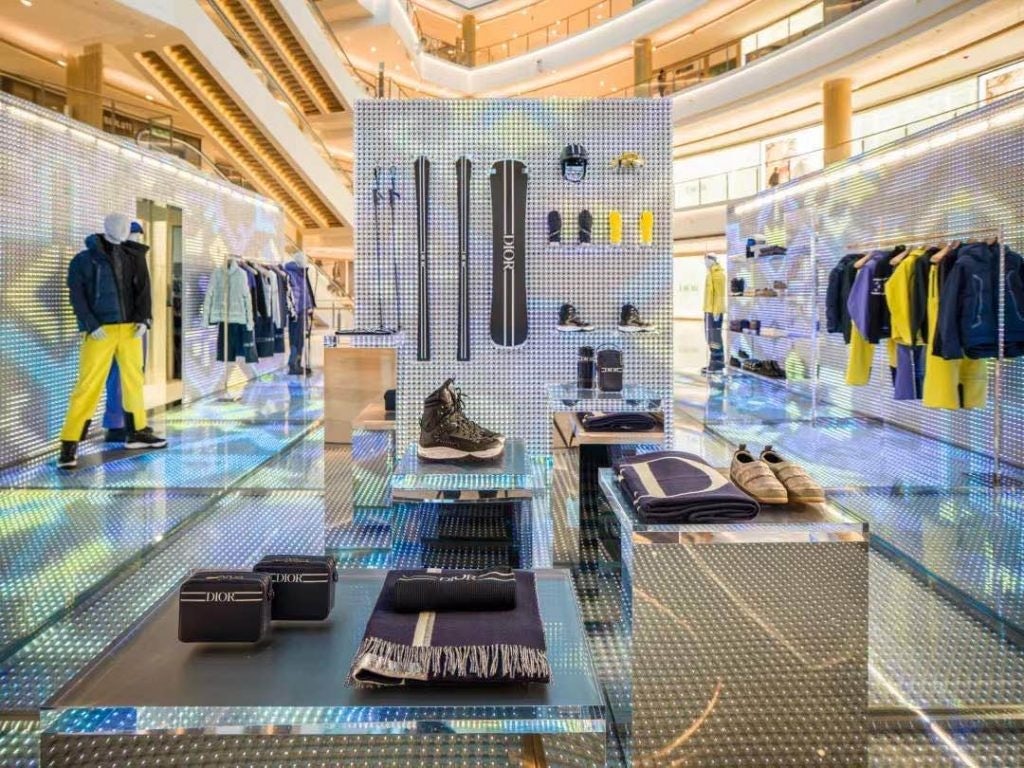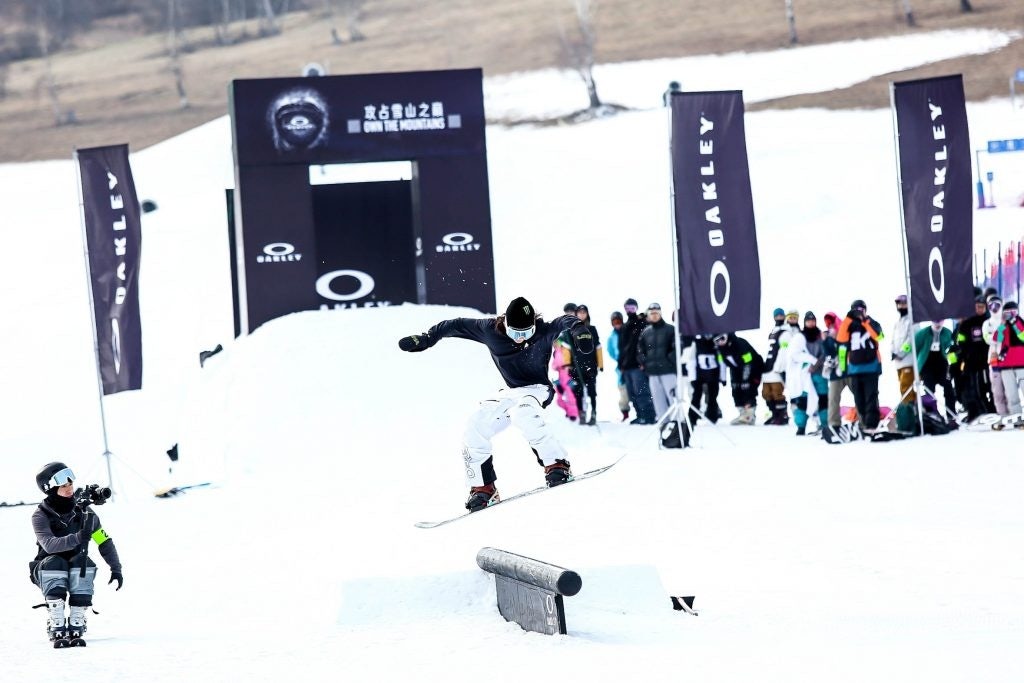Takeaways#
:
- Skiing has transformed from a niche professional sport to a popular lifestyle in China over recent years.
- China’s ski market size in 2022 is expected to be nearly $4 billion — an increase of more than 480 percent over 2015.
- China’s domestic ski market might have been boosted by COVID-19-related travel restrictions, which forced ski lovers to turn their attention to China’s slopes, but the biggest market driver for skiing is, in fact, the Chinese government.
26-year-old Zhang Zhewen hadn’t tried skiing until late 2020. Jing Daily spoke with him just after returning home to his Jiangsu province after visiting a ski resort in the Chongli district of Zhangjiakou, a city near Beijing. “I can’t go abroad because of COVID-19,” he said, “so I decided to take on some outdoor sports.” The Louis Vuitton and Dior shopper recently spent over $3,040 (20,000 yuan) on specialty sports brands such as Burton and Oakley.
During the same week as one of Zhang’s first ski trips, Oakley launched a new product in a nearby skiing resort in the same district. Having entered China in 2008, the brand, under the ownership of eyewear giant Luxottica, has witnessed the rapid expansion of skiing as a newfound hobby. “What we’ve noticed is skiing has transformed from a niche professional sport to a popular lifestyle in China,” said a representative from the brand to Jing Daily. “Consumers’ needs for products are not only restricted to functionality; they prefer items that are both functional and stylish.”

China’s domestic ski market may have been boosted by COVID-19 and the country’s related travel restrictions, forcing ski lovers toward slopes within China’s borders. But the biggest market driver is, in fact, the Chinese government. In 2015, after Beijing and its surrounding cities like Zhangjiakou were announced as the host of the 2022 Winter Olympics, winter sports appeared on China’s national and regional political agenda.
In a planned market economy, this government support gives the burgeoning ski market a seal of approval. And although it is rare to see adult beginners enter established markets, they are everywhere in China. The rise of domestic skiing resorts and indoor skiing schools also gave life to a sport that was once considered a luxury more accessible to China’s rising middle class. The ski market size in 2022 is expected to be $3.97 billion (3.5 billion euros) — an increase of more than 480 percent from 2015, according to a 2019 report by the EU SME Centre, a research center funded by the European Union.
Here, Jing Daily looks at how luxury brands and lifestyle groups are responding to the consumer trend as well as sheds some light on this new opportunity in China, which has been fueled by COVID-19-related travel restrictions and the upcoming Winter Olympics.
Finding an edge through collaborations#
On the cusp of skiing season, luxury brands are launching ski capsules or full ski collections. But even those who don’t have production capabilities for specialist outdoor gear can take advantage of this ski trend through collaborations.
At Shanghai’s hottest experiential mall, TX Huaihai, the French luxury brand Chloé launched a collection in collaboration with Fusalp: a 68-year-old French brand that specializes in skiwear. Chloé invited actress Wang Luodan, who is its ambassador for the ski line, and key opinion influencers like Mia Kong and Cheng Xiaoyue to the indoor launch party.

It is the first time that Chloé has hosted a coordinated physical event around China’s Singles’ Day shopping festival. The Richemont-owned luxury brand told Jing Daily that it has noticed that China’s online luxury consumption is in a phase of rapid development, mostly due to Generation Z’s spending power. At the same time, the younger generation has shown great enthusiasm for collaborations between fashion and extreme sports, according to the brand.
2020 also saw a first for the Italy-based luxury brand Moncler’s 10-year-old ski wear collection, Moncler Grenoble: the debut of its Enfant Collection for children. Moncler’s well-received designer collection, the Genius Project, is also starting to include skiwear in its offerings.
In early November, Dior launched its men’s ski capsule in China in collaboration with the sports brands Descente, AK Skis, and POC, to create clothing, skis/snowboards, and helmets, respectively. But it still hasn’t been determined whether regular shoppers will buy into specialist gear bearing luxury logos. “I don’t think it’s necessary to own outdoor gear from luxury brands,” said Zhang, who admits he usually spends around 100 to 200 thousand yuan on luxury products every year. “I’d probably buy it to decorate my house, but I’d be reluctant to use a Dior snowboard on the slopes.”

Chinese lifestyle groups have placed their bets#
While luxury brands like Balenciaga, Raf Simons, and Stella McCartney have long incorporated skiwear elements into their collections, e-tailers such as Net-a-Porter and Mytheresa have been adding tabs for skiwear. These products include traditional specialist brands and emerging designer brands aimed at wealthy visitors who frequent top skiing resorts around the world. But this year, thanks to COVID-19 and the Winter Olympics, Chinese skiing fans are changing their destinations — from Japan and Europe to resorts in northern China.
In 2016, a subsidiary of Anta Group began a joint venture with the Japan-based brand Itochu and Descente Global Retail to bring the high-end Japanese ski brand Descente to Chinese consumers. After over three years of operation and with nearly 150 stores, Descente took in annual revenue of roughly one billion yuan in China. The brand announced actor Daniel Wu as its first China ambassador in 2018 and signed the actress Xin Zhilei as its womenswear ambassador last year.

At the end of October, Descente Blanc — a new concept store under the Descente brand — opened its doors in Beijing’s fashionable Sanlitun district, marking a first for the store outside of Japan. Now, Chinese KOLs on Little Red Book are posting selfies of themselves at the store and showing their followers how skiwear can be styled into everyday outfits.
Meanwhile, the French travel and tourism operator Club Med, which is now owned by the Fosun Group, announced plans in 2019 to build two ski resorts in China’s northern province, Jilin, and a city near Shanghai called Taicang. It has also continued to cultivate its relationship with professional ski institutions like the Ecole du Ski Francais.
In its 10-year national Winter Sports Development Plan, which was released in 2016, the Chinese government presented a vision of 50 million people directly participating in winter sports by 2025. Now, at the plan’s midpoint, China’s ski market penetration rate stands at less than one percent, according to a report from Guoyuan Securities, proving that untapped opportunities remain for luxury collaborations, training, and tourism.

